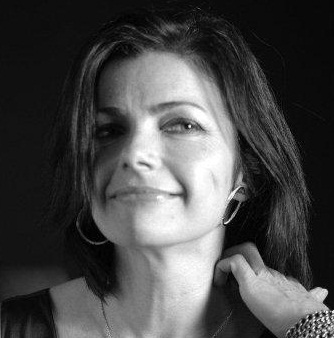Karen Fisher, a professor at the Information School, recently received a Google Award for Inclusion Research to support her work in designing mobile technology for young Syrian refugee women in Jordan.

The award recognizes researchers who use computing and technology to positively impact underrepresented communities.
“We were ecstatic,” Fisher said. “We were totally surprised to get this award because it’s extremely competitive.”
Fisher and her research team have spent seven years working with Syrian refugees, studying how they interact with digital media and ways of improving access.
Mobile devices and social media can be lifelines to refugees, and access begins with understanding cultural factors. In the Arab world, these factors include Quranic law, tribal laws, country laws and Arab culture; for Syrian refugees, the ongoing Syrian war brings a fifth important factor: privacy.
Western-designed mobile and social media technology don’t accommodate the privacy needs of vulnerable Arab populations, Fisher said. Syrian women particularly have a hard time accessing and building trust and agency in modern technology tools.
“When it comes to addressing the specialty of the Arab region — the social notions and values — technology is falling way behind,” Salah Aldin Falioun, Syrian co-researcher from Tokyo University of Foreign Studies, said. “People in societies such as Syria have to make compromises with their values and ethics.”
The research studies displaced Syrian women ages 12 to 24, most of whom have little to no experience using mobile technology and social media. A better support for their privacy and media literacy could improve their communication and information needs. For example, technology could help many women who are heads of households run home-based businesses.
“We’re interested in how Syrian women and young girls can use technology to be entrepreneurs and how they can run businesses out of their home,” Fisher said. “In Arab culture, it’s less the norm for women to be working, and certainly for a woman to advertise her business using her name, photo and other identifiers.”
Fisher said it’s imperative to design for privacy for this population, especially since people fled a totalitarian political environment and their culture has strict rules surrounding gender, friendships and family, and public interaction.
Working with Fisher, Mohammad Shwamra, a Syrian co-researcher from Al Bayt University, said that some women use an alternate name to protect their identity. For a profile picture, they might use an image of a flower or landscape.
“Sometimes, women create an account in their son’s name,” Shwamra said. “We help women and girls use technology safely and protect their privacy.”
Fisher and her team were awarded $60,000 to continue their field co-design with Syrian women in Jordan. Other team members are Yacine Ghamri-Doudane, a professor at the University of La Rochelle in France; and Eiad Yafi, an assistant professor at the University of Kuala Lumpur in Malaysia.
Mohammed Al-Taher, Jordan External Relation Officer at the United Nations High Commissioner for Refugees, said this research will benefit young refugee women by improving their ability to use technology and the internet.
“Giving girls the self-confidence to learn about these technologies can prevent their exploitation by hackers and increase their cybercrime knowledge,” he said.
Since Fisher studies people in vulnerable positions — the participants could face dire consequences if certain people discover their actions — she works with trusted individuals to bridge the gap between “outsiders” and “insiders.” These relationships, however, can take years to build.
“It’s not easy,” Falioun said. “The sense of foreigners or outsiders is unfortunately attached with spying. You can imagine how difficult it is for locals to trust foreign people.”
Working with Syrian refugees to understand Quran and Arab culture, the team aims to build privacy tools and provide training for Syrian women to have control over their online identity. These tools would not only protect women today but also in the next several years.
“A photograph or recording that is taken today, somebody might think that it’s fine,” Fisher said. “But future technology might recognize that face or voice. There’s so much work that has to be done to protect the people.”